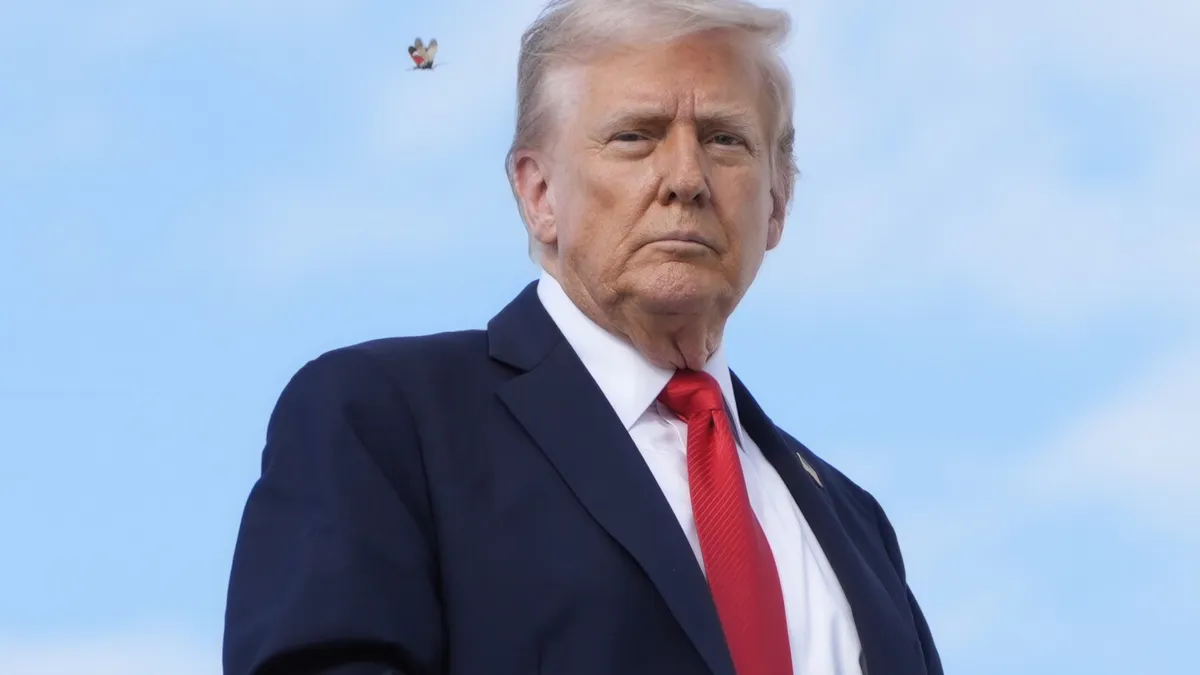
NASHVILLE, Tenn. (AP) — On Friday, President Donald Trump announced plans to deploy the National Guard to address rising crime concerns in Memphis, Tennessee. This decision marks another instance of Trump testing the boundaries of presidential authority by utilizing military force in urban areas across the United States. In an interview with Fox News, Trump stated that “the mayor is happy” and “the governor is happy” regarding the upcoming deployment.
Referring to Memphis as a “deeply troubled” city, Trump expressed confidence in resolving its issues, claiming, “we’re going to fix that just like we did Washington,” where he previously sent the National Guard and increased federal law enforcement presence. Despite the Republican-led state government, Memphis—home to a majority-Black population—is governed by Democrat Paul Young, who openly disputed Trump’s claims. “I did not ask for the National Guard and I don’t think it’s the way to drive down crime,” Young asserted during a press conference, while acknowledging that the city had significant challenges ahead.
Tennessee’s Republican Governor Bill Lee confirmed the National Guard deployment and mentioned plans to discuss the mission's details with the president. Lee emphasized his commitment to providing necessary resources to serve the people of Memphis. “Memphis remains on a path to greatness, and we are not going to let anything hold them back,” he stated.
Governor Lee's endorsement of Trump's military strategy sharply contrasts with Democratic governors in states like California and Illinois, who argue that such deployments undermine local authority and exacerbate tensions. Trump has hinted at similar military actions in other majority-Black cities, such as New Orleans, which are also governed by Democrats.
Despite the announcement of troop deployment, crime rates in Memphis have recently shown signs of improvement. Trump revealed that his decision to send troops followed a conversation with Union Pacific CEO Jim Vena, who highlighted the need for federal intervention. Interestingly, Memphis police reported a decrease in all major crime categories in the first eight months of 2025 compared to previous years, with overall crime hitting a 25-year low and murders reaching a six-year low.
However, the city continues to grapple with persistent gun violence. In 2023, Memphis recorded over 390 homicides, including high-profile cases such as the murder of rapper Young Dolph and the kidnapping and subsequent death of schoolteacher Eliza Fletcher.
The decision to deploy the National Guard has sparked a range of opinions among Tennessee officials. Republican state Senator Brent Taylor supports the move, suggesting that the National Guard could provide essential logistical assistance to local law enforcement. Meanwhile, Steve Mulroy, the district attorney for Shelby County, expressed skepticism, advocating for a stronger federal law enforcement presence rather than military troops, which he believes may not have the appropriate training for civilian law enforcement.
Memphis Mayor Paul Young reiterated his commitment to strengthening the community and emphasized the need for increased funding for crime prevention and more officers on patrol. He believes these resources are crucial for effective policing and community safety.
When asked about the legal basis for deploying the National Guard, the White House did not provide specific details regarding whether state or federal authority would justify the move. Hina Shamsi, director of the ACLU’s National Security Project, raised concerns about the legality of using National Guard troops for policing, stating, “There quite simply is no factual emergency to legitimate calling out troops to perform any kind of policing function.” She argued that such actions could violate constitutional rights and hinder citizens’ freedoms.
Trump's intentions faced criticism from Illinois Governor JB Pritzker, who condemned the military deployment as a misuse of troops for political purposes. Pritzker, a potential contender for the 2028 presidency, stated, “Using those who serve in uniform as political props is insulting. None of this is normal.”
As Trump continues to explore his broader strategy of deploying the National Guard in various cities, the implications for local governance and civil rights remain a contentious topic. His earlier deployments in Los Angeles and Washington, D.C., have already sparked legal challenges and debates over the appropriateness of military involvement in civilian law enforcement.
The situation in Memphis is dynamic, and how it unfolds could set a precedent for future military interventions in urban areas across the country.